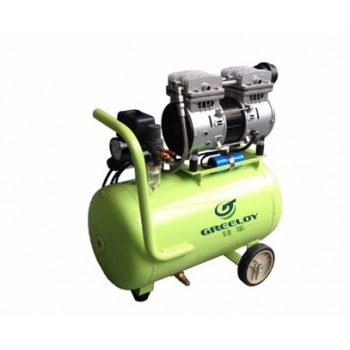Studies have shown that the air that your dentist uses to blow dry your teeth isn’t always very healthy for you. You might not have thought about it, but somewhere in your dentist clinic is a compressor that supplies the compressed air for all his ‘work stations’. It’s not different from an ordinary workshop, only this time the compressor needs some extra special attention.
Not a nice thought: oil in your mouth. If the compressed air coming from the dental air compressor would contain oil, not only would this give a bad taste in your mouth, it would be a high safety concern. Also, oil in the air will facilitate dirt and bacteria build up in the compressed air system.

In the old days, dentist had no other choice than to buy a oil-lubricated compressor and use filters in the compressed air line to filter out any oil in liquid or vapor form. But, with filters you can never be 100% sure. Filters will get old and require replacement in time, before they deteriorate.
Nowadays, a whole range of oil-free compressors is available on the market. Oil-free compressors have the big advantage that they are 100% oil-free, so there is zero chance of oil in the compressed air system.
Water in the compressed air is a common problem in compressed air system, and it is especially a big concern for dental air systems. Of course, you won’t taste a little water in the compressed air, nor will it be toxic. But, water in the compressed air system will increase the risk of bacteria growth. So you really want to have water-free air coming from your compressor.
Refrigerated compressed air dryers will only give you a pressure dew point of minimum 2 degrees. This means that below two degrees, water condensate will form on the inside of your equipment. This kind of dewpoint is nice for tools and grinders in a workshop, but is not low enough for a dental compressor.
The air that is produced by the compressor is used directly in human mouths. They will inhale the air and swallow any contaminations that is within the compressed air. Of course, the compressor and the compressed air must meet the highest possible standards!
See more: https://www.alandental.com/category-101-b0-Dental-Air-Scaler.html